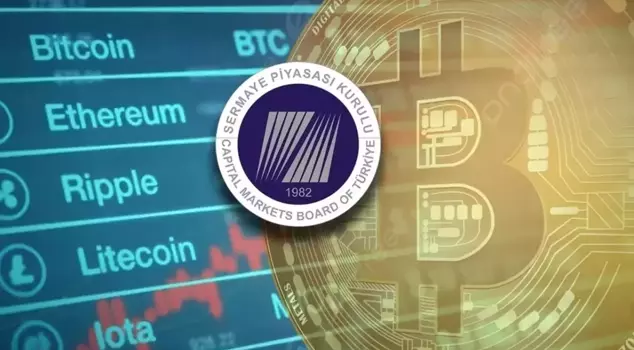
13.12.2024 09:31
The Capital Markets Board (SPK) has imposed access restrictions on 108 cryptocurrency platforms operating without permission in Turkey. The decision affects many cryptocurrency exchanges that are popular worldwide and have millions of users in our country as well.
The Capital Markets Board (CMB), the regulatory authority in Turkey for finance and cryptocurrency, has taken an important step towards enhancing the security of cryptocurrency investors in our country. The CMB has imposed access restrictions on 108 cryptocurrency platforms, making a strong move against sites, including global exchanges.
Cryptocurrency Regulation in Turkey: Increased Security or Market Contraction?
The Capital Markets Board has taken a firm step against numerous platforms operating unauthorized in the cryptocurrency space. The Board has imposed access restrictions on 108 websites, including internationally recognized cryptocurrency exchanges.
The decision includes significant platforms that operate on a global scale, such as BitMart, BitMEX, Phemex, and CoinEx. The list published in the CMB's official bulletin does not yet cover all platforms providing unauthorized services to users residing in Turkey. It is expected that new platforms will be added to the list in the coming days.
This move, based on Articles 99/A and 99 of the Capital Markets Law, aims to enhance investor security. The third paragraph of Article 99/A grants the CMB the authority to halt the activities of cryptocurrency service providers operating without permission and to seize their assets. Additionally, the management of these assets can also be transferred to a trustee.
The fourth paragraph of Article 99 of the regulation grants the Board the authority to impose access restrictions on websites against unauthorized capital market activities and to remove content. The implementation of these decisions is being rapidly carried out by the Information Technologies and Communications Authority.
This ban by the CMB is seen as a marker of a new era in Turkey's cryptocurrency ecosystem. While the cryptocurrency regulation in Turkey aims to enhance investor security, it also has the potential to affect the diversity of platforms in the sector. The long-term impact of the regulation seems to depend on the approaches of cryptocurrency platforms towards compliance with legal regulations and the future steps of the CMB.